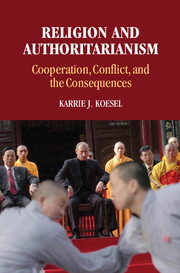Book contents
- Frontmatter
- Dedication
- Contents
- List of Figure, Table, and Illustrations
- Acknowledgments
- 1 Introduction: The Politics of Religion
- 2 Religion and State Games
- 3 Regulating the Religious Marketplace
- 4 The Political Economy of Religious Revival
- 5 The Politics of Faith, Power, and Prestige
- 6 Conclusions: Collaboration and Conflict in Comparison
- Appendix A Methodology and Data
- Appendix B Interviews Cited
- Bibliography
- Index
- References
3 - Regulating the Religious Marketplace
Published online by Cambridge University Press: 05 June 2014
- Frontmatter
- Dedication
- Contents
- List of Figure, Table, and Illustrations
- Acknowledgments
- 1 Introduction: The Politics of Religion
- 2 Religion and State Games
- 3 Regulating the Religious Marketplace
- 4 The Political Economy of Religious Revival
- 5 The Politics of Faith, Power, and Prestige
- 6 Conclusions: Collaboration and Conflict in Comparison
- Appendix A Methodology and Data
- Appendix B Interviews Cited
- Bibliography
- Index
- References
Summary
All politics is local.
– Tip O’NeillIn the previous chapter, I argued that the logic behind religious and state collaboration is based on a combination of uncertainty, needs, and resources: uncertainty of what one side can do to harm the other, symmetrical needs that are mutually supportive and reinforcing, and resources that each has at its disposal and can be offered to the other to meet pressing needs. It is precisely this tripartite framework that facilitates religious and local regime cooperation in authoritarian settings. In this chapter, the discussion turns to why the management of religion is largely a local game. The chapter begins with a detailed tracing of central laws and policies pertaining to religion and religious freedom in Russia and China since the mid-1980s. I demonstrate that over the past several decades, central policies regulating religious expression and activities have created more space for religious freedom; however, these policies are often ambiguous and contradictory. On the one hand, such ambiguity gives the central government (the Center) the flexibility to adapt and amend religious policies as needed to ensure that religion continues to serve the interests of the authoritarian state. On the other hand, the same flexibility empowers local officials to manage religious groups in innovative ways. Thus, what represents a tactical advantage for the Center allows for considerable diversity in the treatment of religious communities locally.
- Type
- Chapter
- Information
- Religion and AuthoritarianismCooperation, Conflict, and the Consequences, pp. 32 - 61Publisher: Cambridge University PressPrint publication year: 2014



